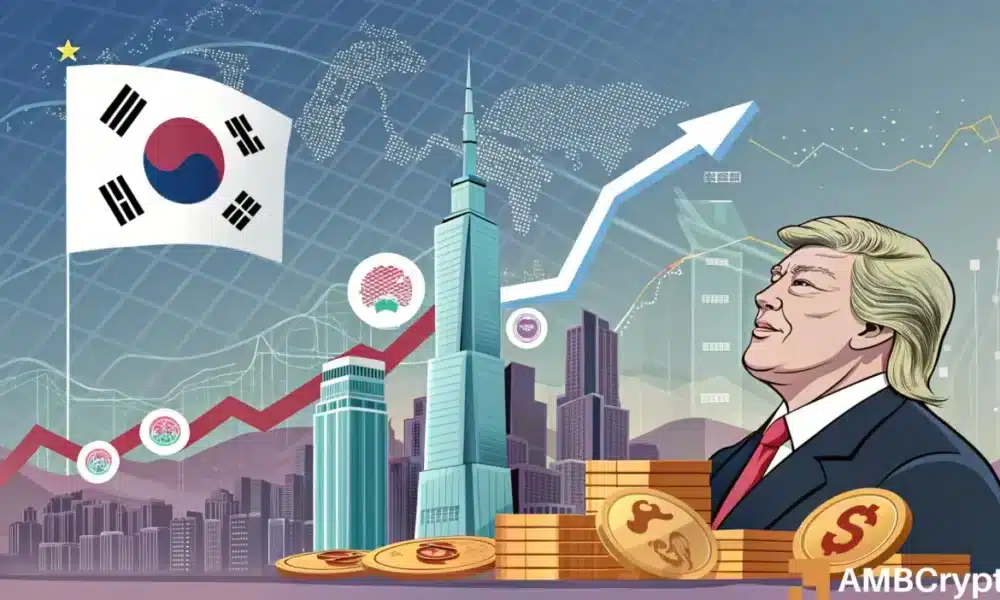- South Korean crypto holdings hit $73.4B, driven by Trump’s re-election and market optimism.
- BOK warned that stablecoins could disrupt monetary policy, calling for a separate regulatory framework.
As the United States accelerates its ambition to dominate the global crypto economy, South Korea appears to be quietly strengthening its position with a massive domestic crypto footprint.
Bank of Korea breaks record in crypto
According to newly released data from the Bank of Korea (BOK), South Korean investors now hold over $73.4 billion in crypto assets across local exchanges, surpassing the 100 trillion won mark for the first time in December 2024.
This record-breaking total is the highest monthly figure since the Bank of Korea began reporting these statistics.
According to the latest payment settlement report, virtual assets in domestic wallets surged to 104.1 trillion won ($73.4 billion) by December, a 2.2-fold increase from October’s 58 trillion won.
The bullish sentiment was fueled by Donald Trump’s re-election, which boosted investor confidence in crypto-friendly policies.
During this period, daily crypto trading volumes skyrocketed fivefold, reaching 17.2 trillion won in December, while deposits more than doubled, further strengthening the market’s momentum.
But Trump is not the only reason behind this surge
While Trump’s re-election fueled market optimism, domestic regulatory changes also played a role in the sector’s growth.
The Virtual Asset User Protection Act, enforced in July 2024, introduced key safeguards against market manipulation and enhanced investor protection.
However, efforts to strengthen this legislation were disrupted by political unrest, following President Yoon Suk-yeol’s martial law attempt in December.
Despite these challenges, lawmakers and financial regulators have committed to resuming crypto reforms after the June presidential elections.
What’s more?
This move follows a recent crackdown where South Korea banned 14 crypto exchanges, including KuCoin and MEXC, for failing to report their operations to local authorities.
However, the Bank of Korea hinted at the likely rollout of a comprehensive stablecoin framework by year’s end, even as it cautioned about the risks posed by their growing prominence.
Meanwhile, industry voices continue to push for easing restrictions on domestic token launches and corporate crypto holdings, areas in which rivals like the U.S. and Japan are swiftly advancing.
As expected, the report expressed concerns and put it best when it stated,
“Unlike general virtual assets, stablecoins have the inherent characteristics of a means of payment.”
It further stated,
“If they are widely issued and circulated and used as a means of payment to replace legal tender, they may have negative effects on the implementation of central bank policies such as monetary policy, financial stability, and payment and settlement.”







